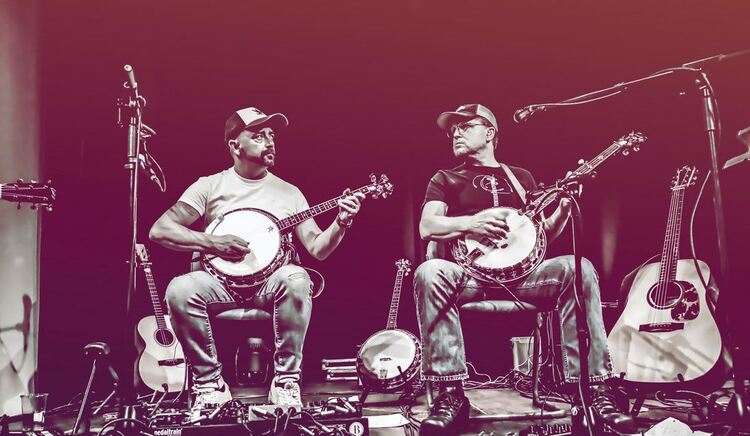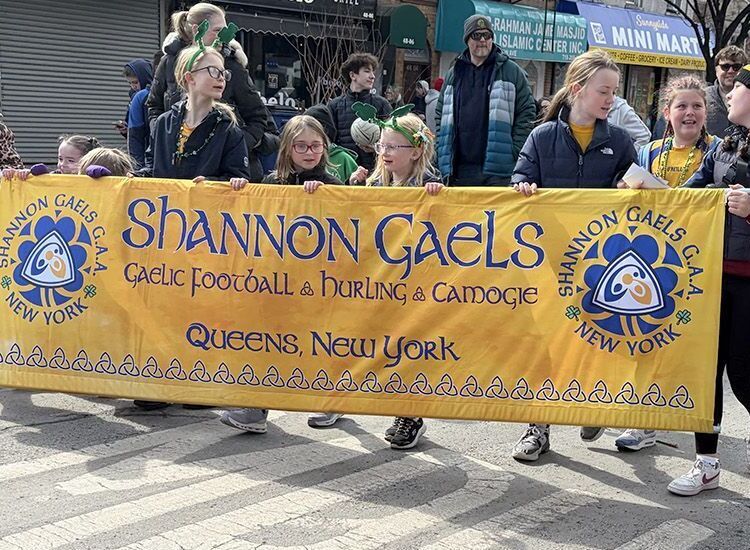Traditional Music / By Daniel Neely
Meaning “to twist” or “change direction,” “Cas” is the evocative title of traditional supergroup Lúnasa’s brand new album. A change of direction is not what one would necessarily expect from a band that last year celebrated its 20th anniversary – after all, why mess with success? But with this, the band’s 10th album, they’ve added a striking new wrinkle that really does set this album apart from all their other: songs. Indeed, this twist is superbly executed and gives the band’s new album an entirely new creative dimension. The result of this change in direction is truly one of the band’s finest albums.
It’s remarkable: two decades on, and the band hasn’t lost a step. In addition to longtime members Kevin Crawford (flute, whistles), Cillian Vallely (uilleann pipes, low whistle), Séan Smyth (fiddle), Trevor Hutchinson (bass, bouzouki, lap steel guitar), and Ed Boyd (guitar), “Cas” introduces more recent members Colin Farrell (fiddle, low whistle) and Patrick Doocey (guitar) to the fold, both of whom contribute to Lúnasa’s classic sound seamlessly.
The album’s instrumental tracks again show a band still well able to make magic with tastefully chosen tunes set in lush arrangements. Some of the outstanding tracks include “The Tinker’s Frolics,” which begins with “Bob’s Hole in One,” a relaxed Crawford original into which the musician breathes extraordinary life. Tunes by Damien Mullane and Farrell follow, and generate an intensity that reaches fever pitch on “Tinker’s Frolics,” the track’s closer. It’s a very auspicious start to an album. “The Cadgers” is another standout. Opening with “Night in Nanchang,” a stunning tune composed by the brilliant fiddler David Doocey, it builds momentum with the traditional tune “The Cadgers,” and finally in Vallely’s energetic “The Border Reel.”
The album includes some stunning down-tempo tunes as well. “Sinead Máire’s” is a beautiful set of contemplative jigs all composed by a Vallely brother: Cillian wrote the first and last and his brother Niall wrote the middle tune. Listeners may recognize this set from Vallely’s solo album “Raven’s Rock,” but it’s been emboldened here in a full Lúnasa arrangement. “Pontivy” is another impressive offering, this one suffused with Breton flavor. It opens with a Breton carol whose plaintive, almost haunting character is abetted by Hutchinson’s creeping bass and then shifts gears into a nimble piping tune by Polig Monjarret. The set ends with a lovely, rhythmic composition of Breton flutemaker Pol Jezequel. It’s great stuff.
Peppered into the mix, then, are the utterly intriguing vocal tracks I wrote of earlier, performed by an impressive group of guest artists, including Tim O’Brien, Natalie Merchant, Daoirí Farrell, Mary Chapin Carpenter, and Eric Bibb. It’s an incredible bunch. And it’s not as if Lúnasa hasn’t performed with singers before. They tour often with the likes of Karan Casey, and have performed live and on record with O’Brien and Merchant. But I suspect having these folks in to play on their home field gave these collaborations a bit more of a Lúnasa stamp, but who knows? The results are brilliant, regardless.
O’Brien’s feature on “The Water is Wise” an excellent example. The Grammy award winning artist brings a taste of bluegrass to Lúnasa’s signature sound and together they strike a wonderful balance. O’Brien’s mandolin playing is relaxed and has great swing, and Crawford’s fits into the groove in the nicest of ways. Jan Fabricius’s subtle vocal harmonies are a treat as well.
Merchant takes the lead on “The Bonny Light Horseman,” a fabulous vehicle for the singer’s powerful voice. The arrangement Lúnasa’s provides is very tasteful and understated, leaning heavily on Boyd’s guitar work. The fiddle and flute swells that initially punctuate the beats in Merchant’s phrasing are intensified later on with well placed, uncomplicated piping. Ultimately, she seizes the spirit of the song effortlessly and gives the collaboration an immediate, obvious appeal.
I am particularly taken by Daoirí Farrell’s feature, “Paddy’s Green Shamrock Shore.” I enjoy Farrell’s music very much; I find his albums awash with interesting, tasteful songs, and his powerful and reedy delivery proves a lovely match with Lúnasa’s pipes and fiddle-heavy arrangement. Bibb’s singing on “My Lord What a Morning” is also brilliant. The sparse low whistle harmonies in the arrange deepen the song’s pastoral quality and enhance Bibb’s already superb delivery. Fantastic stuff.
“Cas” is one of the most complete, most compelling trad albums I’ve heard in a long time. Lúnasa is in excellent form here, firing on all cylinders throughout, and while the instrumental tracks are vintage Lúnasa and satisfying on their own, the stylistic diversity the vocal tracks bring make this album something quite special. This one’s a must for traddies, but it’s also a great ambassador for Irish music in general because the diversity of guests will have strong appeal with folks who wouldn’t normally listen to trad music at all. Buy “Cas” now, it’s worth checking out. (And perhaps someone should alert the Recording Academy about this one?) To learn more about “Cas” and to keep up with Lúnasa on tour, visit Lunasa.ie.









